
Eco-feudalism Looms Over Pakistan's Climate Future
Umer Jamshaid Published July 24, 2025 | 02:10 PM

ISLAMABAD, (UrduPoint / Pakistan Point News - 24th Jul, 2025) Climate inequality is not just a cloud on the horizon; it’s already raining hardest on the least prepared. From sub-Saharan Africa to South Asia, sudden climate impacts are reinforcing old hierarchies and birthing new ones.
Pakistan, ranked among the top ten climate vulnerable countries, faces rapid water depletion, glacier melting, and erratic weather patterns. Yet, the burden is not equally divided. As elites enjoy life behind solar-powered walls, millions suffer from heatwaves, water scarcity, and displacement. This goes beyond climate injustice, it marks the forerunner of climate apartheid, on track to embed an eco-feudal order where survival is a privilege, not a right.
Climate apartheid describes the growing gap between those who can afford protection, air conditioning, safe housing, food stocks, and the have-nots, left as victims of climate shocks without any umbrella. Eco-feudalism means the elite dominate the most vital environmental resources, turning ecological survival into a class privilege. These ideas reveal that climate change is an issue with social injustice far beyond scientific or environmental concerns.
In 2019, UN Rapporteur Philip Alston warned climate change would undo 50 years of development and global poverty reduction. His caution resonates in vulnerable nations like Pakistan, where environmental degradation and resource plunder recreate feudal structures under the guise of crisis management and development.
The climate crisis in Pakistan is more than ecological disaster, it exposes systemic inequalities as the elite tighten their grip on power, while the weak sink deeper. Water resources are captured by strong landlords through canal colonization and illegal tube wells in Punjab, draining aquifers and denying small farmers irrigation, aggravating rural distress. Urban land use planning favours privileged enclaves like Bahria Town with flood-resistant zones, while flood-prone katchi abadis remain neglected and underserved.
Climate financing favours elite-centric projects, such as the billion Tree Tsunami and metro systems, over local resilience.
Dr. Adil Najam, founding dean of Boston University’s Pardee school, calls this a climate policy disparity focused more on visibility than vulnerability.
Similarly, urban planner Arif Hassan criticizes development patterns promoting spatial and environmental unfairness in cities. These trends indicate climate action, unless deliberately inclusive, risks reinforcing inequalities it seeks to solve.
Waterlogging, salinity, and extreme weather displace legally unrecognized landless peasants in Sindh, who remain excluded from post-disaster compensation. Rural women suffer disproportionately, tasked with walking long distances for clean water, sustaining dwindling food supplies, and caring for families.
The 2022 floods starkly revealed this imbalance in areas like Dadu and Badin, where institutional support was minimal or absent.
Conversely, some critics argue Pakistan’s climate initiatives, such as the Billion Tree Tsunami and metro projects, are essential developmental responses rather than elite capture instruments. According to Abid Suleri, these initiatives align with international climate objectives and are crucial for any country’s resilience. Furthermore, climate impacts are often narrated universally, affecting all income groups. The idea of uncontested elite rule is complicated by international climate finance oversight. The notion of Pakistan sliding into eco-feudalism may oversimplify complex structural and policy challenges
Addressing climate inequality in Pakistan demands inclusivity, emphasizing vulnerable populations. Decentralizing climate adaptation funding and empowering local governments can foster disaster-responsive, localized solutions. Expanding affordable renewable energy and rainwater harvesting in rural and informal urban settlements will reduce dependence on elite-controlled resources. Incorporating gender-sensitive planning recognizes women’s critical role in climate resilience. Strengthening legal frameworks governing groundwater extraction and land use can check resource monopolies. Above all, community engagement and climate education will foster ownership of sustainable solutions.
Pakistan sits on a volatile mountain of climate challenges that could either deepen inequality or spark equitable growth. With thoughtful reforms, the country can transform its climate crisis into an opportunity for social cohesion and fair development, avoiding the trap of eco-feudalism.
Recent Stories
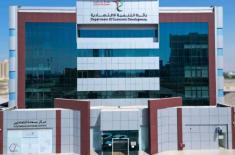
14.5% increase in total licensed capital of active business licences in H1: Ras ..

What advice Pakistan head coach gave to cricket team after Bangladesh defeat?
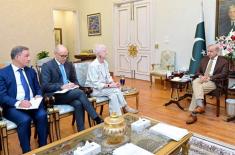
PM reaffirms Govt's commitment to GSP Plus scheme
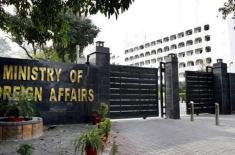
Pakistan condemns Israeli move to assert sovereignty over West Bank
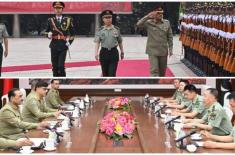
Field Marshal Asim Munir bolsters strategic, defence ties during China visit
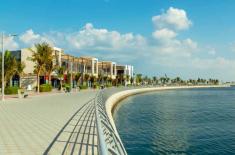
Ajman Air Quality Index rises to 96.19% percent in H1

ENEC, Westinghouse sign agreement to accelerate nuclear energy deployment in US

Actor Amara Chaudhry shares harrowing experience of living alone in Karachi

Good news as Sindh govt abolishes parking fees on all Karachi roads

Ajman Crown Prince, Mongolian Ambassador explore ways to boost cooperation

Google develops AI tool that fills missing words in Roman inscriptions

UAE expresses solidarity with Russia, expresses condolences over victims of plan ..
More Stories From Pakistan
-
IUB, Chinese research centre ink agreement
9 minutes ago -
Senate commends Presidential Address to Parliament.
9 minutes ago -
Ambassador of Saudi Arabia calls on President Asif Ali Zardari
9 minutes ago -
Four young sisters drown in river in Dukki
9 minutes ago -
Culture minister calls on PM Shehbaz Sharif
19 minutes ago -
Governor discusses Independence Day celebrations
19 minutes ago
-
Green Mansehra, prosperous Pakistan, 350 saplings planted during monsoon plantation drive
19 minutes ago -
Health Authority distributes motorcycles to field staff
29 minutes ago -
FGEHA’s F-12/G-12 Housing Scheme under re-evaluation
29 minutes ago -
Two robbers killed in Burewala police encounters
29 minutes ago -
Former PTI leader Nawabzada Mohsin Ali Khan joins PML-N, meets PM Shehbaz Sharif
39 minutes ago -
IBA test qualified 275 candidates for the post of Sub Engineer get job offer letters
39 minutes ago